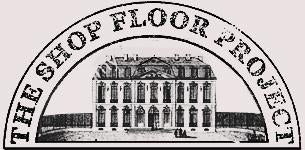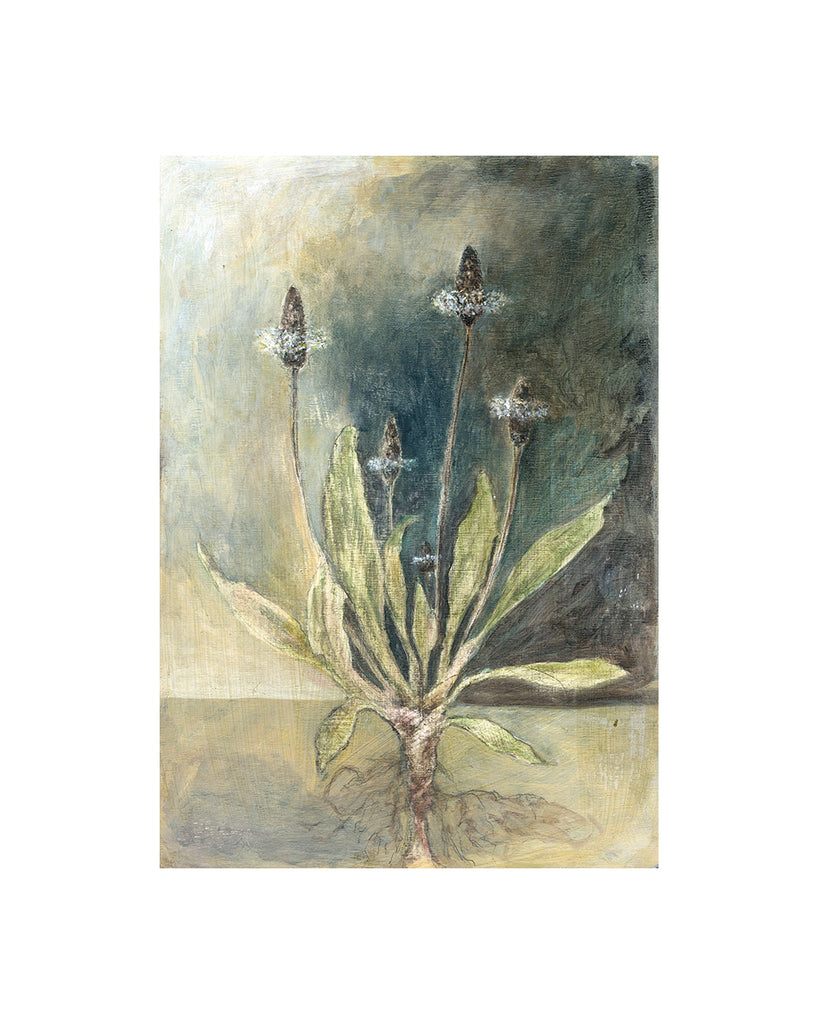Details
An original, signed painting on board by Denise Allan.
Signed on reverse
Material: Water based oil on wooden board, within choice of black or ivory wooden frame.
PAINTING SIZE: 209 x 297mm / 20.9 x 29.7cm / 8.2 x 11.7 inches
FRAMED SIZE (IVORY FRAME): 315 x 403mm / 31.5 x 40.3cm / 12.4 x 15.9 inches
FRAMED SIZE (BLACK FRAME): 301 x 389mm / 30.1 x 38.9cm / 11.9 x 15.3 inches
Please note: Our framers are recognised by the Fine Art Trade Guild for their quality because the custom frames have tightly pinned corners, and are made from precision cut wood in England, made bespoke for each order. All our frames are glazed with our Clarity+ Perspex. It's cut from the highest quality acrylic sheet that's both crystal clear, but also safe and filters out 99% of UV light to protect the artwork.
Read more about our FRAMING WORKSHOP here
THE STORY
The Plant Hunter is a collection of new works by Denise Allan and consists of an extraordinary series of original paintings on wooden panels.

Inspired by an edition of De Materia Medica, a multi-volume book on herbal medicine illustrated by the Italian artist and botanist Gherardo Cibo (1512–1600) whose herbal illustrations are set against Italian landscapes.

Further inspiration came from the botanical works of Marianne North and her astonishing rooms at Kew, dedicated entirely to North’s work. The framing of Denise’s paintings has also been inspired by these rooms, where the frames are placed close to each other so they almost become a room of panels, creating a kind of church of botany.

The plant subjects for Denise Allan’s new collection can be found amongst the wild flora of the Levens Estuary and on the shores of Morecambe Bay. It is part of an ongoing exploration of the flora and fauna found within the landscape surrounding the artist’s home and studio.

On daily walks she collects sketches of sea holly, wild plantain, briar rose and sea pinks, along with specimens that have found their way out of the gardens that edge the shore, such as Chinese foxglove, snowdrops, a lone tulip and a self-seeded kale.

Back in the studio, these sketches of humble flowers are elevated to monumental sculptures set against stormy landscapes with their roots planted into earth. The scale of the specimens places the viewer on an insect’s-eye-view, looking up in awe at these structures.

The works contain astonishing detail; look closely at the bulb of the narcissus or the peeling dried paper-like spathe’ - it almost crunches.


Any of us who garden or look closely at plants will share the artist’s appreciation in the beauty of something as simple as a bolted kale. In this painting there is a quiet grandeur, a regal column of beautifully painted curled leaves, crowned with a spray of yellow brassica flowers and black seed pods.

Whilst many of the landscapes brood with the promise of an oncoming storm, others such as Sea Holly contain a fresh luminosity. As always, Denise manages to create a tangible atmosphere within her work, as shown in Sea Holly where it feels as though the sunshine has just appeared after the rain, with a warm mist rising.

Given that the ‘weight’ and presence of these specimens are as tactile as a three-dimensional object, it is no surprise that Denise Allan studied sculpture as well as painting for her BA Hons. in Fine Art. Often working with installations within the landscape, her early work was a form of Land Art, but increasingly, over the years, she enjoys bringing her work back into the studio. This interplay between interior and exterior, bringing the outside inside, means that the sense of being situated in the landscape always remains, and is a fascinating development from her early works.

























